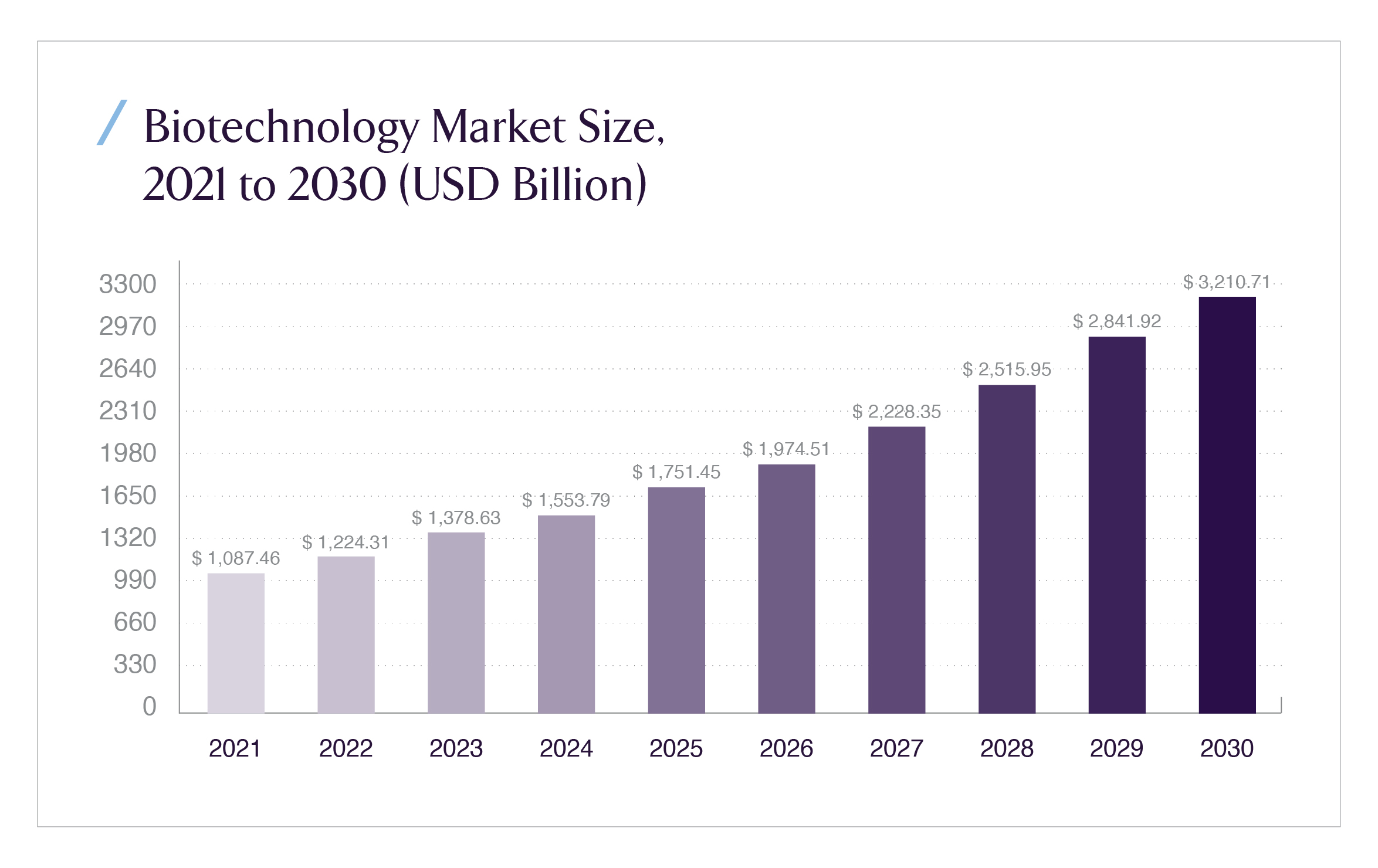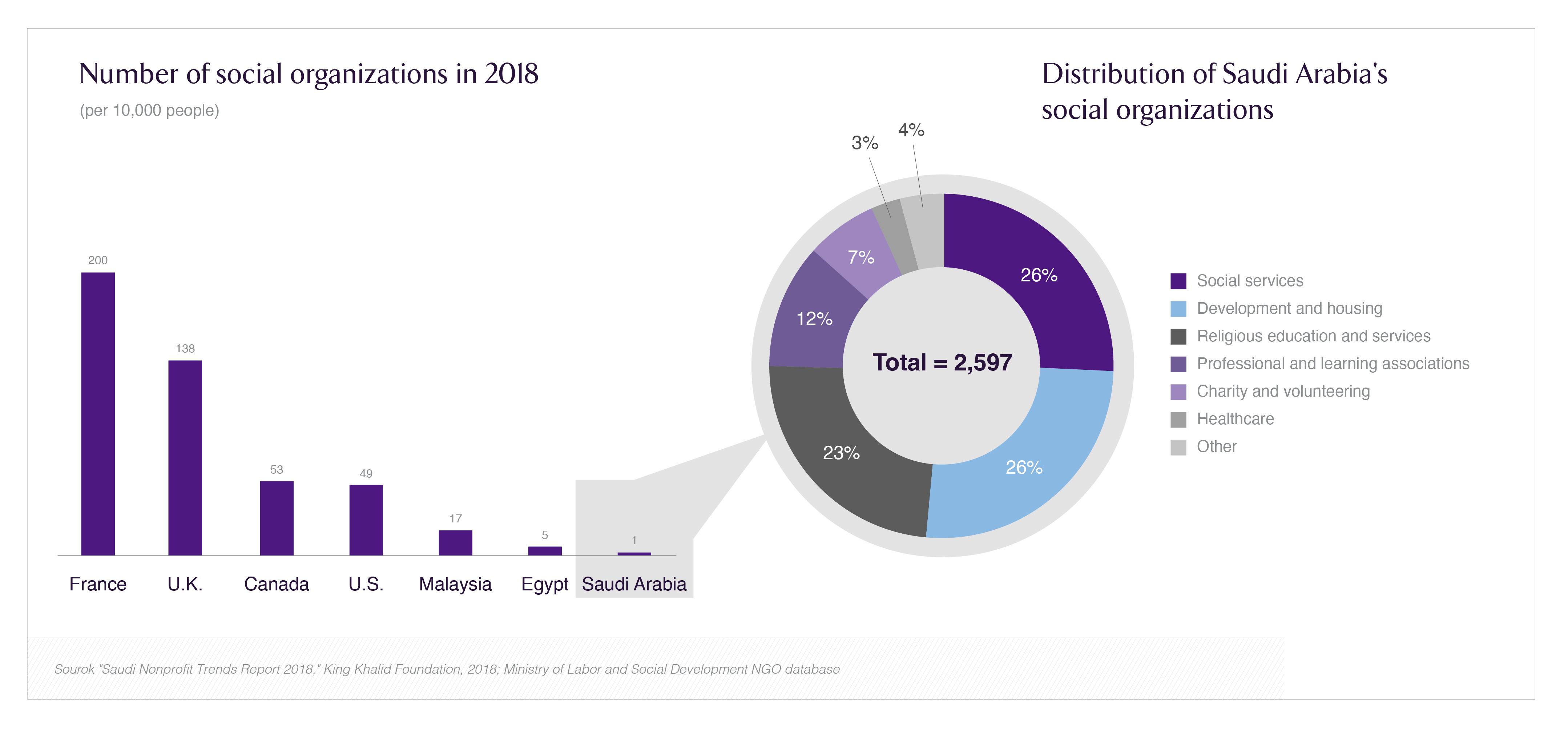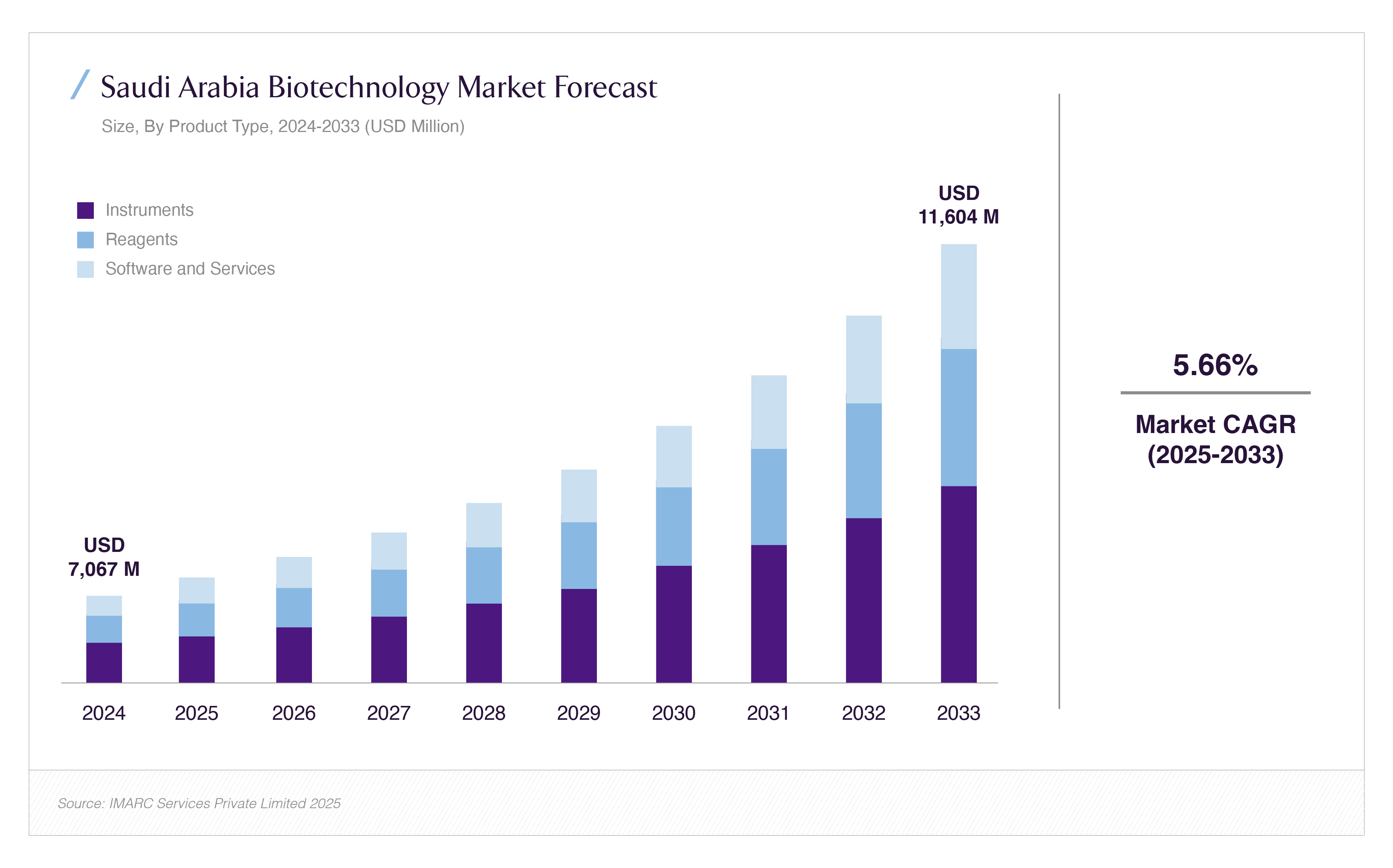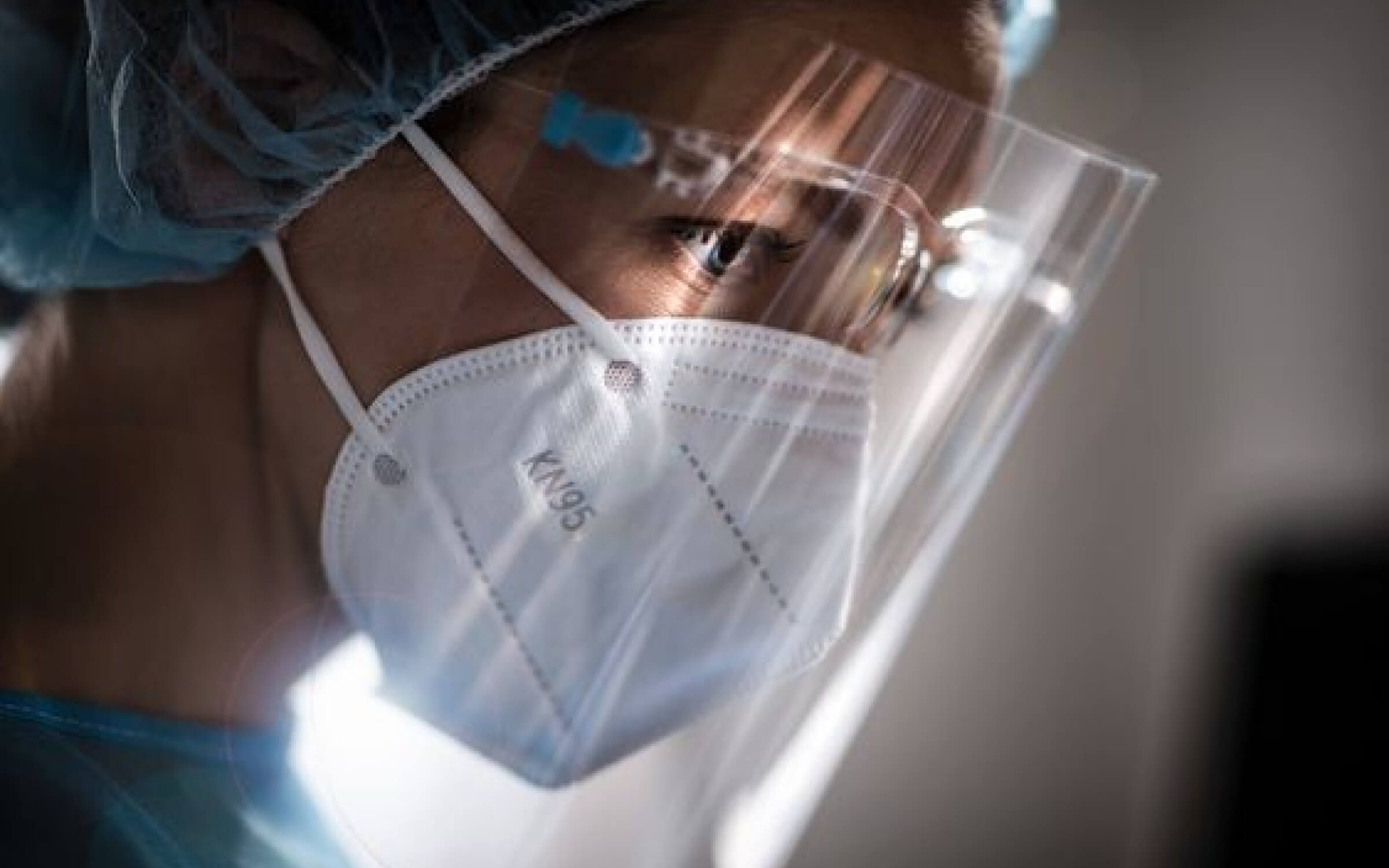In June 2025, Saudi Arabia took a major step to establish itself as a world biotechnology leader at the BIO International Convention in Boston. Saudi Arabia also revealed its biotechnology potential as it had a concentrated presence at the biggest biotechnology event in the world, which is an indication that it is keen on becoming a significant participant in life sciences and biotechnology. New biotech investments, regulatory changes, and clinical trial innovations were also part of the showcase of the Kingdom, which further demonstrates its intentions to become a biotech hub in the Middle East and beyond.

The paper explores the emerging biotechnology industry in Saudi Arabia with a focus on the biotechnology strategy of the country, the regulatory environment within the Saudi Food and Drug Authority (SFDA), and the current partnerships and investments to enhance its participation in the life sciences. This new interest is vital because the Kingdom is diversifying its economy and working to achieve its Vision 2030 goals, lessening its dependence on oil income and spurring technological and economic development.
The National Biotechnology Strategy and Vision 2030
Saudi Arabia has a plan to change its economy through diversification of its economy as part of the ambitious Vision 2030. One of the most important features of this transformation is the expanding biotechnology industry in the Kingdom that is increasingly becoming the core of its long-term strategies. In 2024, the National Biotechnology Strategy was introduced to make Saudi Arabia a leader in biotechnology by 2040. Some of the major goals that have been identified in this strategy include increasing the contribution of biotechnology industry to the GDP, generating thousands of high quality jobs and developing advanced biomanufacturing capacity in the Kingdom.

The biotech industry will add 34.6 billion dollars to the Saudi economy by 2040 and will generate more than 11,000 jobs by 2030. This expansion path can be directly attributed to the strategic investments that are being undertaken in infrastructure, regulatory reforms and partnerships with global biotech companies. As healthcare expenditure is expected to grow at a rate of 9 percent per year between 2023 and 2028, the investment in biotech may transform the healthcare sector in the region and turn it into the hub of life sciences.
The healthcare sector, in its turn, is a very important part of Vision 2030, which is supposed to guarantee that the healthcare system of the country will become more sustainable, innovative, and efficient. As biotechnology is playing a significant role in the diversification of the economy, the Kingdom is exploring the new technologies in genomics, pharmaceuticals, and biotechnology-based solutions to enhance the health and well-being of the population. In 2030, the biotech industry will contribute 2 percent to the GDP of Saudi Arabia, which forms a solid foundation for the future of the Kingdom.
Regulatory Reforms and the Saudi Food and Drug Authority (SFDA)
The SFDA, which is instrumental in making Saudi Arabia a biotech hub in the world, has achieved a lot in transforming the regulatory environment of biotechnology. Among the most significant reforms is the creation of a fast-track approval system of clinical trials that reduced the approval period to only 120 days as opposed to 270 days. The purpose of this move is to speed up the process of developing and implementing new biotech products and to make sure that Saudi Arabia will not lose its position in the global biotechnology environment.

The SFDA has facilitated the process of approval, as well as aligning the regulatory frameworks with international standards, which makes Saudi Arabia a more appealing place to biotech companies interested in investing in the area. Further, the SFDA has been keen on enhancing transparency, safety measures, and the development of public-private partnerships, which has further solidified the position of the Kingdom as an emerging biotech hub.
The SFDA also revealed that it would set up new clinical trial networks and regulatory pathways that will allow local and international biotech companies to conduct research and development (R&D) more effectively. The goal of Saudi Arabia is to develop an ecosystem that will promote life sciences innovation, providing an environment that is conducive to commercialization of biotech products and treatments.
Biotech Investment
Among the most notable aspects of Saudi Arabia in its quest to become a life sciences hub is the emphasis on building strategic international alliances with major stakeholders in the biotech sector. During BIO 2025, Saudi Arabia signed a number of memoranda of understanding (MoUs) with major biotech companies, including CRISPR-based gene editing technologies, therapeutic product development, and localization of biologic drug manufacturing. These deals represent a major transition to international partnerships that will speed up development of the biotechnology industry in Saudi Arabia.
Saudi Arabia has drawn a number of big-name biotech companies to the region, such as world leaders in gene therapy, biologics and genomics. Firms such as Pfizer, Merck and Roche have either increased their operations or joint-venture with Saudi partners. The Kingdom has also been entering into various alliances with Chinese, European, and American companies to introduce innovative biotech solutions in the region. Such investments cover a variety of fields, such as vaccine development, cell and gene therapy, and biologics and biosimilars production.
In order to promote such partnerships further, Saudi Arabia is establishing special biotech zones in strategic sites, including Riyadh BioCity, which is projected to become the most important biotech and life sciences hub in the region. The city will have the latest laboratories, manufacturing and research facilities, which will be the center of attraction to the local and international biotech companies. The government has assisted these activities through a number of government programs such as the Saudi Arabian General Investment Authority (SAGIA) which provides incentives to foreign investors in biotech.
Besides, the Kingdom has been collaborating with foreign research centers to create a localized genomic repository, which will prove essential in the study of regional genetic diseases and the promotion of precision medicine. Such joint projects should lead to the discovery of breakthroughs that might have a worldwide effect on healthcare and biomedicine.
Advancing Biotechnology
Saudi Arabia has also shown increased interest in the latest biotechnology, especially the CRISPR-based gene editing and advanced therapeutics, which it presented at BIO 2025. The Kingdom is putting lots of money into these spheres as it sees their potential to change the face of healthcare in the Middle East and North Africa (MENA) region.
A recently revolutionized gene-editing tool CRISPR has been demonstrated to have great potential in genetic disease treatment and Saudi Arabia is striving to be one of the pioneers in the field. Saudi Arabia is also in the process of localizing the CRISPR research and enabling its commercialization with the help of partnerships between local universities and international biotech companies. The investment in CRISPR technology by the Kingdom is a larger strategy to create local biotech solutions that can be used locally and regionally.
Besides the CRISPR, Saudi Arabia is also targeting therapeutics, especially in the area of immunotherapy and personalized medicine. Some of the local biotech startups are coming up with new medicines to treat diseases like cancer, diabetes, and genetic diseases. These firms are collaborating with other biotech companies across the world to develop the clinical trials pipeline and introduce new therapies in the market faster.
To complement these, the Kingdom is investing in quality research institutions, including the King Abdullah International Medical Research Center (KAIMRC) which carries out advanced research on genomics, molecular biology and drug development. Saudi Arabia is also working on the number of clinical trials that are done in the Kingdom as it aims to be a regional hub of clinical research.
Building the Biotech Ecosystem
Saudi Arabia is also investing in biotech infrastructure in order to facilitate the development of the emerging biotech industry. This involves building more sophisticated research laboratories, production plants and medical research institutes, including the King Fahd Medical City and the King Abdulaziz City for Science and Technology (KACST). These investments will be aimed at giving the needed infrastructure to promote innovation, research, and development in the life sciences.
It is also essential to have a qualified labor force to serve the biotech industry. Saudi Arabia is emphasizing education and talent and has been providing scholarships and training in the field of biotechnology and life sciences. The Kingdom has also entered into collaboration with the major universities and research centers around the world to offer specialized education and research opportunities to Saudi nationals. Such concentration on talent development will make sure that the Kingdom is endowed with human capital that will be needed to spur innovation in biotechnology.
Besides education and research, Saudi Arabia is also developing a strong venture capital system to promote biotech startups and innovations. Saudi Venture Capital Company (SVC) has been investing in biotech startups actively, not only offering them financial support but also business know-how to enable them to grow and become successful.
Conclusion
The fact that Saudi Arabia is attending BIO 2025 is an indication that the country is determined to be a global leader in biotechnology. The Kingdom is positioning itself to be a hub of biotech in the Middle East and the world by investing and planning strategically on a research infrastructure, reforming regulations, exploring global collaborations, as well as supporting emerging technologies, such as CRISPR and gene therapies. Saudi Arabia is establishing a sustainable, diversified economy, one based on innovation, research and the creation of life sciences, through its National Biotechnology Strategy and Vision 2030.
The biotechnology industry in Saudi Arabia has a huge potential with an estimated contribution of $34.6 billion to the GDP by 2040 and the generation of more than 11,000 jobs by 2030. The expanding infrastructure of the Kingdom, its world-class research institutes, and an emerging pool of talent will make Saudi Arabia a major hub in the global life sciences sector, and this further entrenches its position as a global leader in biotechnology and healthcare.


















